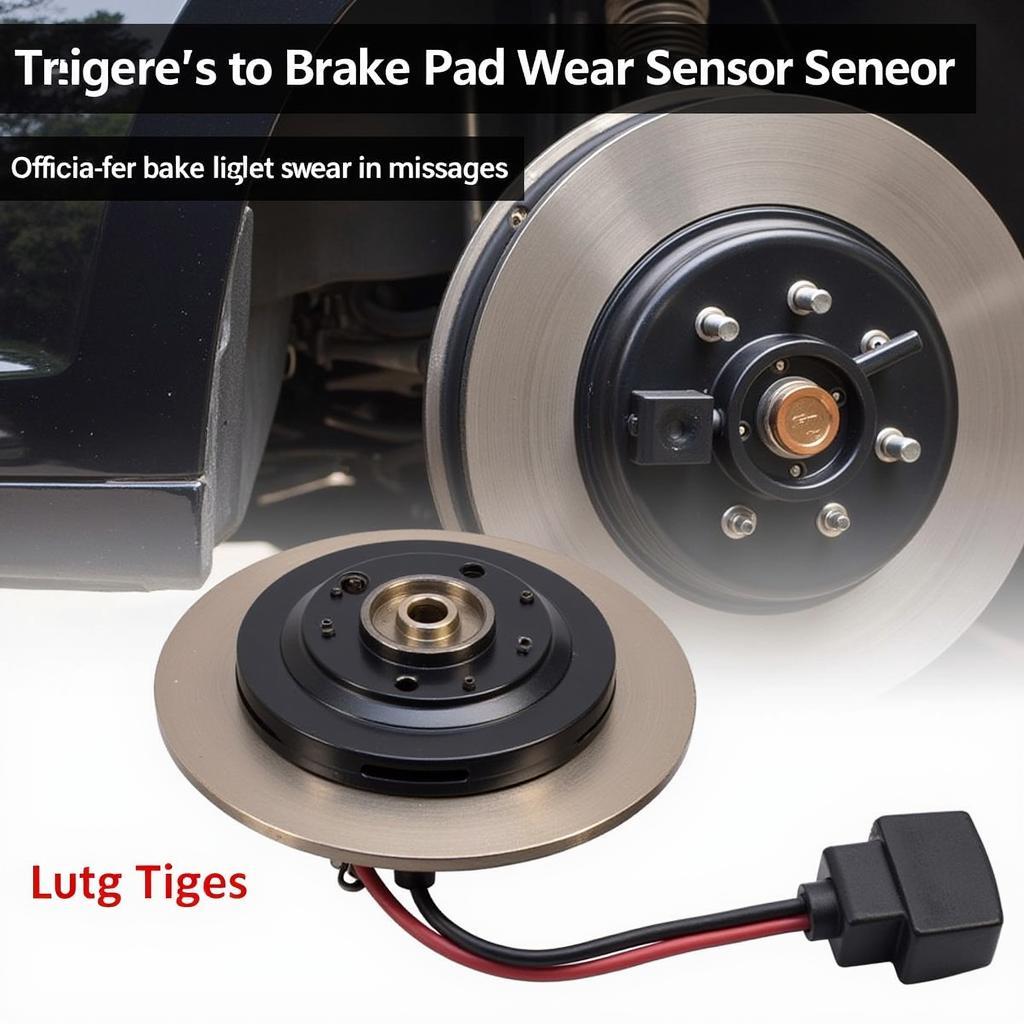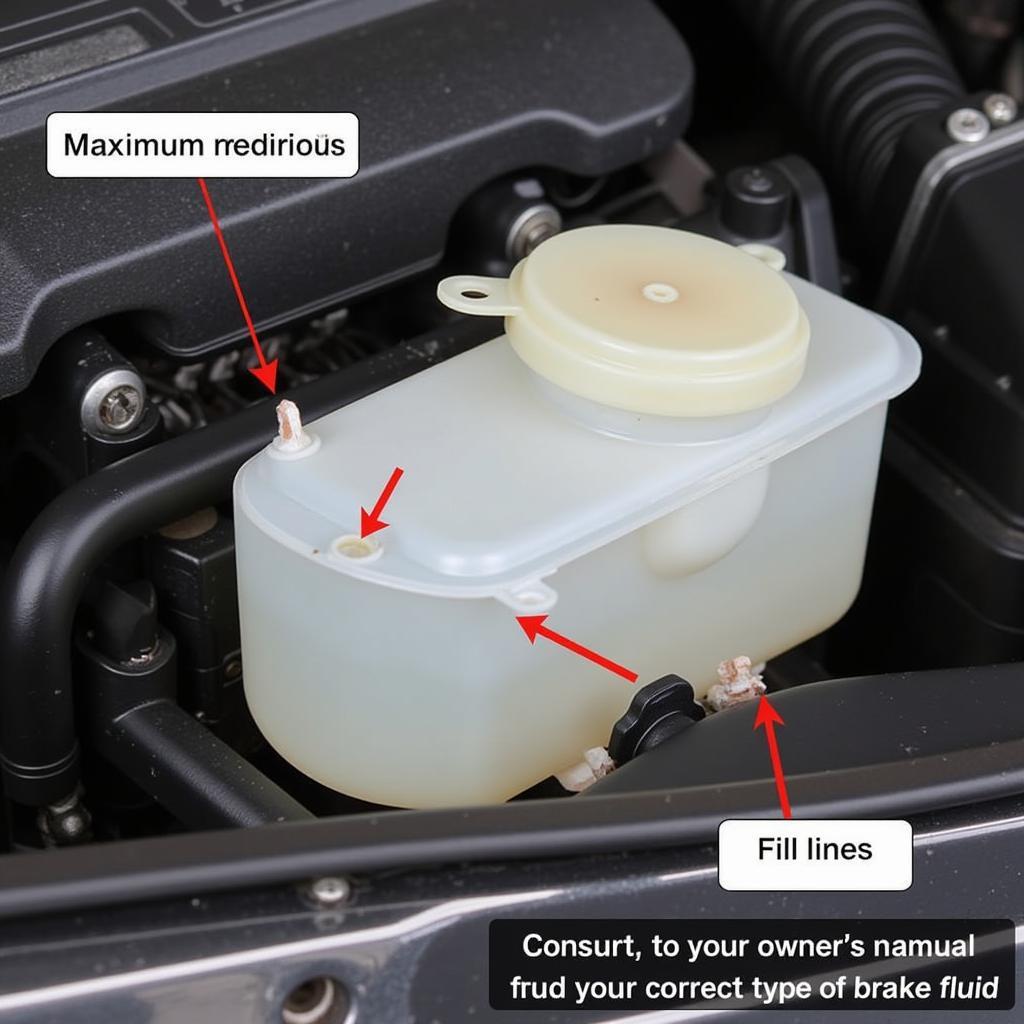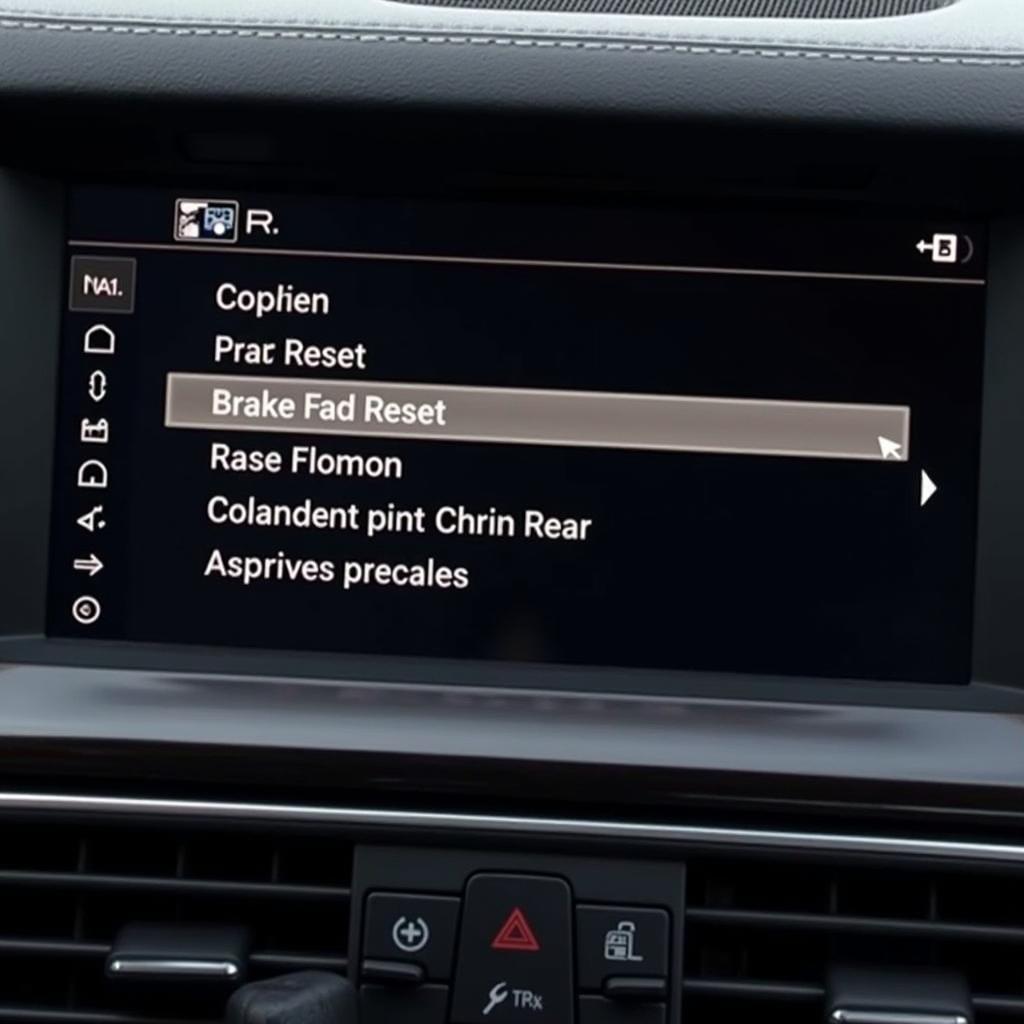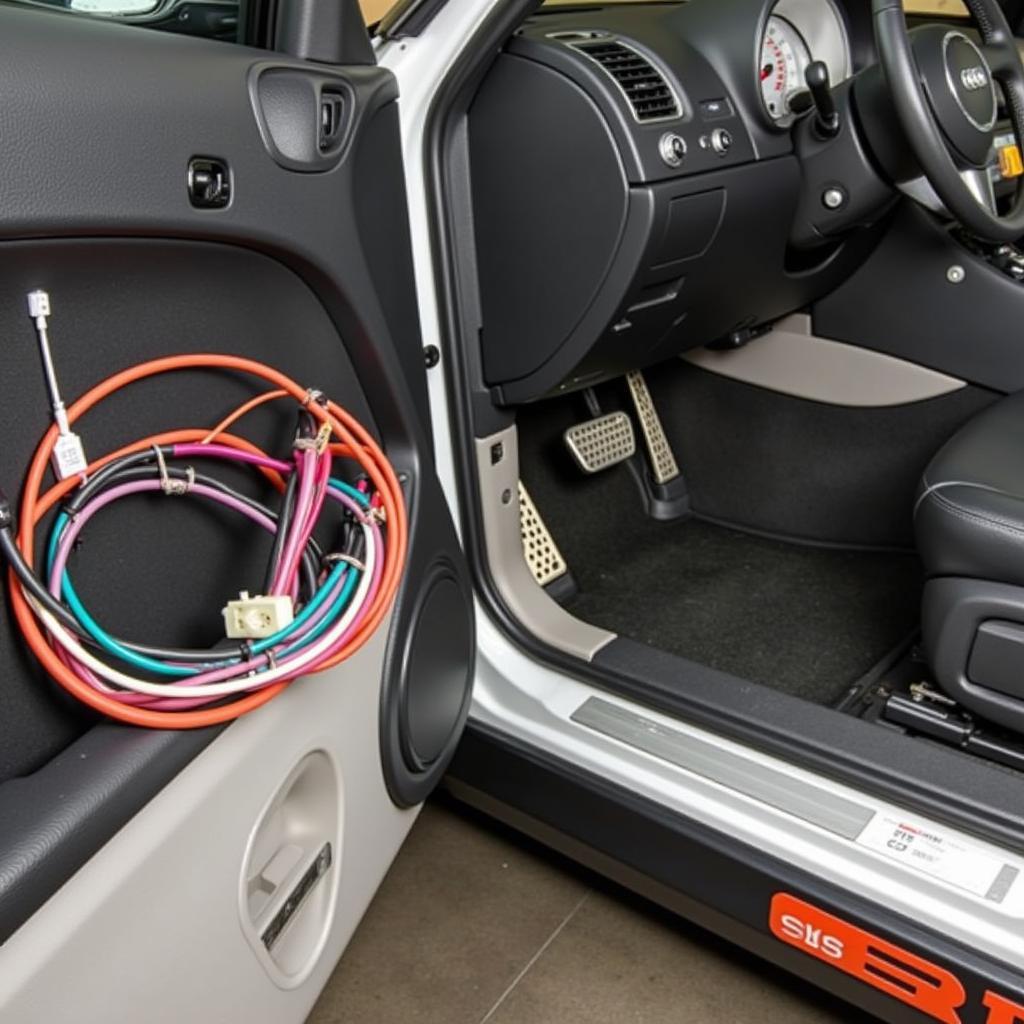The brake wear warning light on your VW is a crucial safety feature that should never be ignored. This light indicates potential issues with your braking system, ranging from worn brake pads to more serious problems. Knowing how to address this warning is essential for maintaining your VW’s safety and performance on the road.
Common Causes of a VW Brake Wear Warning Light
There are several reasons why your VW’s brake wear warning light might illuminate. Let’s explore the most frequent culprits:
-
Worn Brake Pads: The most common reason for the light is worn-down brake pads. VW vehicles are equipped with brake pad wear sensors that trigger the warning light when the pads reach a certain level of wear, signaling it’s time for a replacement.
-
Low Brake Fluid Level: Brake fluid is the lifeblood of your VW’s braking system. If the fluid level drops too low, often due to a leak, the warning light will activate.
-
Faulty Brake Pad Wear Sensor: Sometimes the brake pad wear sensor itself can malfunction, causing a false warning light. A diagnostic scan can determine if this is the issue.
-
Issues with the ABS System: While less common, problems with the Anti-lock Braking System (ABS) can also trigger the brake wear warning light. This often requires more complex diagnostics.
 VW Brake Pad Wear Sensor
VW Brake Pad Wear Sensor
What to Do When Your VW Brake Wear Warning Light Turns On
If you notice your VW’s brake wear warning light illuminated, it’s crucial to take immediate action:
-
Assess Your Driving Conditions: If possible, safely pull over and stop your vehicle. Driving with compromised brakes is incredibly risky.
-
Check Your Brake Fluid: Carefully inspect your brake fluid reservoir. If the level is low, adding brake fluid might temporarily address the issue, but it’s crucial to have a mechanic inspect for potential leaks.
-
Avoid Heavy Braking: Until you can have your VW inspected, try to anticipate stops and avoid heavy braking as much as possible.
-
Schedule an Inspection: Don’t delay! Contact a qualified mechanic specializing in VW vehicles to diagnose and address the root cause of the warning light.
The Importance of Addressing the Warning Light Promptly
Ignoring the brake wear warning light can lead to serious consequences, including:
-
Reduced Braking Performance: Worn brake pads significantly compromise your VW’s ability to stop effectively, increasing the risk of accidents.
-
Damage to Brake Rotors: Continuing to drive with worn brake pads can damage the brake rotors, leading to costly repairs.
-
Complete Brake Failure: In extreme cases, ignoring the warning light can lead to complete brake failure, putting you and others on the road in danger.
Diagnosing and Repairing the Issue
A qualified mechanic will typically perform the following steps to diagnose and repair the problem:
-
Visual Inspection: They will visually inspect the brake pads, rotors, brake lines, and other components for signs of wear, damage, or leaks.
-
Diagnostic Scan: They will use a diagnostic scanner to read any stored trouble codes in your VW’s computer system, providing valuable insights into the problem.
-
Component Testing: They may test individual components, such as the brake pad wear sensors or the ABS module, to identify the source of the issue.
-
Repair or Replacement: Based on their findings, they will recommend the necessary repairs or replacements, which could include new brake pads, rotors, sensors, brake fluid flush, or addressing ABS-related issues.
Preventing Future Brake Wear Warning Light Issues
Proactive maintenance is key to preventing future brake wear warning light issues:
-
Regular Brake Inspections: Have your brakes inspected by a qualified mechanic at least once a year or as recommended in your VW’s owner’s manual.
-
Brake Pad Replacement: Replace your brake pads before they are completely worn down. Consult your owner’s manual or mechanic for recommended replacement intervals.
-
Brake Fluid Flush: Have your brake fluid flushed and replaced every 2-3 years or as recommended by your mechanic. This helps maintain optimal braking performance and prevent corrosion within the system.
-
Address Warning Lights Promptly: Never ignore any warning lights on your dashboard, especially those related to your brakes. Promptly addressing these warnings can save you time, money, and potential headaches down the road.
Frequently Asked Questions
Q: Can I drive my VW with the brake wear warning light on?
A: It’s not advisable to drive with the brake wear warning light on. Driving with compromised brakes is unsafe.
Q: How much does it cost to fix a VW brake wear warning light?
A: The cost of repair varies depending on the underlying cause. Simple brake pad replacements are less expensive than repairs involving the ABS system.
Q: How often should I replace my VW’s brake pads?
A: Brake pad lifespan varies depending on driving habits and conditions. However, it’s a good rule of thumb to have them inspected annually.
Q: Can I check the brake fluid level myself?
A: Yes, you can locate the brake fluid reservoir under the hood and check the fluid level against the minimum and maximum markings.
 VW Brake Fluid Reservoir
VW Brake Fluid Reservoir
Q: What is the difference between the brake wear warning light and the ABS light?
A: The brake wear warning light typically signals worn brake pads or low brake fluid, while the ABS light indicates a problem with the Anti-lock Braking System.
If you are experiencing issues with your VW’s brake warning light, don’t hesitate to seek professional assistance. For more information on specific VW models, you can refer to these resources: vw routan brake warning light, vw passat brake warning light reset, passat brake pad warning light reset, vw t4 brake pad warning light reset, vw passat brake pad warning light won& 39. Remember, addressing brake issues promptly ensures your safety and the longevity of your VW.


